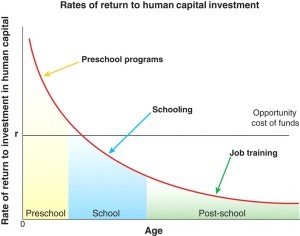
When I talk about raising successful children according to “experts”, I put “experts” in quotations because I’m always a little suspicious of power and authority (not in the crazy conspiracy theory kind of way, though). I prefer to cast my lot with the commoners, the proletariat, the powerless and voiceless, etc. But as much as I am suspicious of authority, I’m even more averse to willful ignorance; I always like to survey what the “experts” have to say before I come to my own conclusions.
Also, to be honest, while it is a really complicated and personal topic, research about raising kids probably isn’t as fraught with corporate, political, and professional interests as much as, say, tax policy research might be. So it’s seems pretty safe to believe most of what these guys and gals have to say.
Well, you must be impatiently wondering, “who are these damn experts already?” I’ll tell you. In this post I’m going to summarize three different books about kids:
- NurtureShock: New Thinking About Children by Po Bronson & Ashley Merryman
- How Children Succeed: Grit, Curiosity, and the Hidden Power of Character by Paul Tough
- The Anthropology of Childhood: Cherubs, Chattel, Changelings by David Lancy
After that I might reference a few other articles and then I’ll close and try to find some common threads. Ok, let’s go.
Summary: NurtureShock: New Thinking About Children by Po Bronson & Ashley Merryman
This was my favorite book of the bunch because it seemed to be the most comprehensive, surveying many different studies and avenues of research. As such, there wasn’t really a central premise.
Topically, here are some of the main findings:
- For best results, praise kids with caution. First off, intermittent praise is always better than consistent praise. Secondly, when it comes to the kind of praise, it ismuch better to praise behavior and effortrather than innate traits such as intelligence (i.e.: “You studied really hard for that test; I’m proud of you.” is better than “You did great on that test; you’re so smart.”)Praising innate traits has the undesirable effect of making kids less likely to challenge themselves and work harder because it reinforces the idea that people are who they are and can’t improve themselves. Interestingly, the opposite is true when trying to instill moral behavior in kids, but I’ll touch on this later.
- Sleep is really important. One hour of nightly sleep lost for kids in 4th – 6th grade makes them function two grade levels below theiractual ability. A-students in high school get an average of 15 more minutes of sleep per night than B-students, and same with B vs. C. Sleep-deprived people also tend to focus much more on the negative and are more likelyto be obese (interesting: supposedly no correlation between media use and obesity).Kids spend 40% of sleep in slow-wave cycle, where long-term learning happens, vs. adults who spend on 4% of time there. Later school start times have been shown to significantly increase standardized test scores for high school students due to increase sleep.
- Certain things need to be talked about regularly. Kids don’t automatically learn egalitarian attitudes about important topics such as race, sexuality, and/or gender equality. They need to hear regularly from parents about these things, ideally starting around 1st grade (3rd grade is too late).
- All kids are liars. Okay, if we’re splitting hairs, only 96% really are… but still guys, I mean, six-year-olds lie once every hour! Why do kids lie?… Mostly to please their parents and other adults.Lying frequency usually gets better with maturity, but there are two best practices to shorten the lying phase. First, don’t ignore little lies; it sends the message that lying comes with little downside. Second, remove the threat of punishment and reassure kids that the thing that will make you the happiest is to know the truth; remember, they’re lying to please you.
- Kids’ brains develop at different rates. The whole competition thing for early childhood education is misguided and excludes students that end up being pretty smart down the road. It isn’t really until 3rd grade that relative intelligence starts to normalize.
- Kids with siblings are not better adjusted than only children. Many times the opposite is actually true; siblings often accelerate and exacerbatethe development of aggression and other antisocial traits.

The best sibling relationships happen when older siblings first learn pro-social behaviors from their peers and then apply these within the family; parents have limited ability to teach these behaviors. Shared fantasy play (imagination), is a really effective way for young kids to develop socially.
- Being a cool, permissive parent doesn’t earn you any favors from your teen children. In fact, the families with the least deception had higher rates of arguing and complaining. Teens need rules, and a failure to set rules sends the message that parents don’t really want the job of parenting, that they don’t care. The type of parents thatwere lied to least were the ones that consistently enforced rules but still found wayto be flexible for special occasions.

Either way, teens are going to rebel and argue; it is their nature. However, most teens have a sophisticated understanding of fights and arguments and don’t necessarily view them as harmful or destructive.
- Self-control can be taught. I kid you not! 😉 And in fact, self-control is MORE important than intelligence (more on this later from Paul Tough). One of the best programs out there that helps young children learn self-control is called Tools of the Mind (also recommended by Paul Tough).
- Set a good example with your relationship. Kids’ emotional well-being and security are more affected by their parents’ relationships with each other than by their own relationships with the parent. Kids are highly attuned and learn by example. This doesn’t mean that fighting is always bad, and in fact fighting can be a good way to show kids pro-social ways of resolving arguments. The key is to always set a good example and to resolve fights/arguments cordially and in front of the kids.

Hopefully you can see why I liked this book…. lots of actionable, take-home items. The next one has its fair share of those too, but is a little bit more narrowly focused.
Summary: How Children Succeed: Grit, Curiosity, and the Hidden Power of Character by Paul Tough
Ever heard of the cognitive hypothesis? It goes something like this: “the smartest children end up being the most successful, so the best thing a parent can do to set their kid up for success is to really cultivate knowledge and intelligence.” In this book, Paul Tough basically calls B.S. on the cognitive hypothesis, citing research from many different sources, including Nobel Prize winner James Heckman.
His alternative (and evidence-backed) theory is called… wait for it… the non-cognitive hypothesis, which says that intelligence is secondary to character. It is really the traits like grit, self-control, self-confidence, resilience, and curiosity that lay the foundation for a successful, well-adjusted life down the road; cognitive skills matter much less than people believe.
One of the ways that Tough illustrates this is through a few studies, which show that GPA, not standardized test scores, actually predict college success. The implication here is that a divergence of GPA and test scores reveals important information about personality traits and work ethic.
Maybe I’ve simply heard this line of thought one too many times, but it all seems pretty intuitive to me. I knew a lot of really smart kids in my class that just got bored and/or weren’t especially motivated. But the interesting thing, according to Tough, is that, to some extent, it wasn’t their fault. He says that a lot of the most important non-cognitive traits are conditioned at a very young age.
For example, kids who grow up in really chaotic households, kids with lots of stress and trauma, end up not being able to fully utilize certain parts of their brain that are essential to developing said character strengths later in life. That is because the seeds of character start growing in infancy, when a child has little control over his or her environment.
The best way to set infants up for a successful happy life is to provide them with emotionally secure, nurturing relationships and to protect them from trauma and chronic stress (lots of hugs, cuddles, and soothing baby talk, I guess). This helps them learn how to self-regulate at an early age.

It is amazing how important this early stage of attachment is for kids. Considering this, though, it is no surprise that the highest-ROI childhood intervention programs start the earliest:

After the early attachment phase of life, there are still things that can be done to build character (grit, determination, etc.), but they just aren’t as effective as having done things right early on (an ounce of prevention is worth a pound of cure).
Specifically, there are certain schools that really help develop character. Tough mentions the early childhood education program Tools of the Mind as a standout example. They do things like have kids plan their day out in advance, practice self-regulation by taking turns listening and talking, and spend a lot of time playing complex make-believe games (sound familiar?).
Even later in life, there are things that can help kids develop character. There are programs like the KIPP charter schools that teach these traits, and more generally, there are things parents can do such as taking their children seriously and challenging them to improve themselves and not being overly protective or indulgent.
A common secondary theme of the book is that kids these days are often over-indulged and sheltered from failure. The repercussion of this well-intentioned parenting behavior, however, is that children are less prepared for real life. In actuality, these failures and challenges are exactly the kind of experiences needed to build character.
There are also some fun tangents about optimism vs. pessimism, cognitive-behavioral therapy techniques for helping kids grow, and a whole section about raising chess masters, but in the interest of time, I think this is most of the important stuff.
Summary: The Anthropology of Childhood: Cherubs, Chattel, Changelings by David Lancy
The Anthropology of Childhood is basically a textbook, albeit a really interesting one. It is a comparative anthropology of childhood from around the world (more than 3,000 sources if I remember correctly). The main theme of the book is how different childhood is in post-industrial countries like the U.S. versus less-developed countries in Africa or Asia, for example.
The starkest difference is that the developed countries tend to treat their children like prize possessions, “cherubs,” even before they are born, lavishing tons of time and resources on them, while other societies can’t afford to be so generous and instead have a very laissez faire attitude toward the young “chattel,” with some societies not even naming or recognizing a child as an individual until adolescence. The interesting thing is, the kids turn out mostly ok in either situation… there are advantages to both given the extremely different environments.
I didn’t read all the way through this dense book, but instead picked out a few key chapters. So I’ll divide what I read into themes to make it easier to follow:
Play
Play is very important for development and learning; the timing of peak childhood play coincides with periods of maximum plasticity and responsiveness to neurological development. In 15 species of primates, there is a statistically significant relationship between cerebellum size and time devoted to play. Most developed societies, however don’t provide ample opportunity for quality play.
Not only is play important for neurological development, but it is extremely important for social skills. Unsupervised play, to be specific, such as marbles (or 4-square if your childhood was at all like mine), teaches kids “gamesmanship,” how to navigate social situations, how to garner resources and support through diplomacy, how to cooperate, negotiate, compromise, etc..

In most undeveloped parts of the world, kids participate in a lot of unsupervised play. Many parents view playtime simply as a way to keep the kids occupied so they can proceed with their day-to-day responsibilities. This, however, is a mutually beneficial arrangement for the kids too.
In less developed societies, play groups are large and diverse, providing kids plenty of opportunities for complex social play. (I’m reminded of some real slick-talking kids I knew back when I lived in the Bronx. They were extremely sociable and dynamic and could almost always twist my arm to get what they wanted, no doubt as a result of social play with large groups of peers in a dense and mostly unsupervised and unstructured environment).
In many developed areas, however, opportunities for quality play are limited. There are fewer and fewer public spaces as people urbanize, and along with urbanization there are heightened concerns about safety, both of which have the same result: keeping kids isolated. Additionally, play is often mediated and managed by adults, which means there are fewer opportunities to develop skills like gamesmanship and imagination. Electronic entertainment also contributes to these trends. However, among developed countries there are some exceptions.
In Sweden, there is a saying about kids’ play: “There is no bad weather, only bad clothing.” Swedes send kids out to play all the time, much more than we do in the U.S. And, surprisingly to me, Japanese preschools are very rowdy places, filled with loud rambunctious kids, who run, hit, roughhouse, and climb all around. Japanese value these traits, being strong, fit, healthy, exuberant and physical.
The bottom line is that kids in developed countries could use a lot more unstructured, active, and social play.
Over-protected cherubs
Lancy writes that childhood problems for children in developed societies stem from parental over-protection. Sound familiar? He goes on to say that anxiety about children’s’ happiness leads to a degree of overreaction and indulgence, with negative consequences. Protecting children from overrated pitfalls, perils, and disappointments impairs their ability to learn from their environments.
He shows that children are natural learners. They want to fit in, develop competence, and be liked; they don’t need encouragement. He’s referring to something called “open attention,” which is the ability to take in a ton of information over a sustained period of time. Over-protected kids from industrialized societies don’t have opportunities to utilize or develop this skill because much of their learning is adult-directed, managed, and mediated from an early age.

Compare this to other cultures where adults consider it improper to teach a child something he or she could easily learn on their own (Inuit, Navajo). Most kids learn easily through observation and emulation. Adults in these less developed cultures are not scared to let kids take risks that would be unthinkable in the U.S., such as letting little ones carry (dull-ish) machetes in their mouth or play with fire.
I think the following passage rounds out the argument up pretty nicely:
“Other cultures do not buy into the myth of childhood happiness (and fragility), much to their benefit. Our need for happy (and safe) children makes them lazy, unhealthy, and (counter-intuitively) unhappy. [Westernized] children are protected from the need to work, which leads to lower development of responsibility, empathy, and pro-sociality, and leads to adults who are less trusting, less trustworthy, more risk-averse, less competitive, more pessimistic, and less conscientious individuals.”
School: where the hands-off approach doesn’t work
One of the main themes of the book goes something like, “Hey developed world parents, get out of the way!.. The kids are alright!” However, this isn’t true when it comes to school. While kids are pretty darn good at learning culture, social skills, and ways of navigating environments on their own, there is nothing natural to them about formal education.

When it comes to school, children have far less natural interest and need incentives to raise their motivation. There is evidence that several years of early inculcation by a patient teacher or parent are required for kids to succeed at school (finally a point for the industrialized world).
Soon to be students must learn obedience, self-control, and discipline, and above all, rapt attention to a teacher, initially a parent. He goes on to discuss two primary ways parents get their kids to do well in school, the Tiger method and the involved parent (I think) method. Those are both beyond the scope of this write-up, unfortunately.
Other interesting parenting / childhood research:
This is where I get into articles rather than books.
The Case for Having More Kids – NY Times
This is a Q & A with David Caplan, the author of “Selfish Reasons to Have More Kids.” His main argument is that after your first kid, the marginal cost of each additional child is lower than most people realize. He says that we invest way too much time and energy into our kids (mutually painful piano lessons, baby Einstein, etc.) for too little return.
Most of his argument is based on identical twin studies, which show that kids, for the most part, revert back to who they are in the long run; so don’t try to fight it too hard. Just enjoy the process as much as possible and have fun.

I think this fits well with what we know about the primacy of character and also how well kids can take care of themselves in other cultures. Regardless of whether or not you agree, it is a provocative idea.
Raising a Moral Child – NY Times
We all want our kids to be successful, but worldwide, we actually want to raise caring kids first and foremost. (This makes me temporarily feel good about the human race.)
So what is the best way to raise a moral child? According to this article, the trick is to praise the individual, not the behavior (exactly opposite of what to do for cognitive-related behaviors). For example, kids respond to and internalize, “That was great that you shared, you’re such a generous person,” more than “…. That was such a generous thing you did.”
On the flip side, when discouraging bad behavior, it is important to focus on disappointment with the behavior itself, coupled with high expectations for improvement and an appeal to good character: “You’re a good person, even if you did a bad thing, and I know you can do better.”

And finally, this sort of goes without saying, but kids will respond to what you do, not what you say. If you model poor behavior, kids will quickly pick up on this and imitate it.
The optimal time for this kind of moral development is age 5-10, with 8 being the sweet spot.
How Finland Keeps Kids Focused Through Free Play – The Atlantic
This article reinforces earlier discussion about the importance of play. It highlights research showing that kids learn more and pay better attention when given regular breaks of unstructured play and activity. Don’t underestimate play, folks!
Phys Ed: Can Exercise Make Kids Smarter? – NYT
I’m bummed I don’t have more comprehensive information on this because I’ve read about it many times, but the gist is that exercise is really important for neurological development… higher IQ’s, more financial success later in life, improved test scores, changed brain structure etc. This isn’t surprising at all if you’ve come across my article on healthy living. Exercise really is the wonder drug that makes you happier, healthier, smarter, sexier, and more successful.

Conclusion
I don’t mean for this to be a definitive list of parenting research. This is just what I’ve come across so far, and it feels like more than enough to chew on for now. Most of it seems reasonable enough, and there aren’t too many contradictions that I can’t rationalize in my head.
Some of the common themes I found were:
- Character strengths are more important than cognitive skills.
- Don’t be overprotective; kids need failures and challenges to grow.
- Praise kids/behaviors strategically.
- More activity and unstructured social play is a good thing.
- Be a good role model.
- And Relax! The kids will probably turn out just fine!
I’m not even a parent yet, but I did feel our baby girl move for the first time last night. So you know, that’s what entitles me to speak on this subject. If you’ve got any tips or resources, I’d love to hear them!
Thanks for visiting-
FG ROI